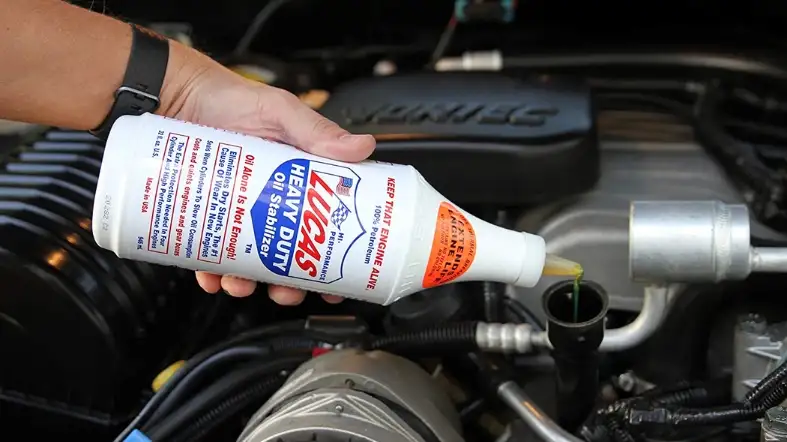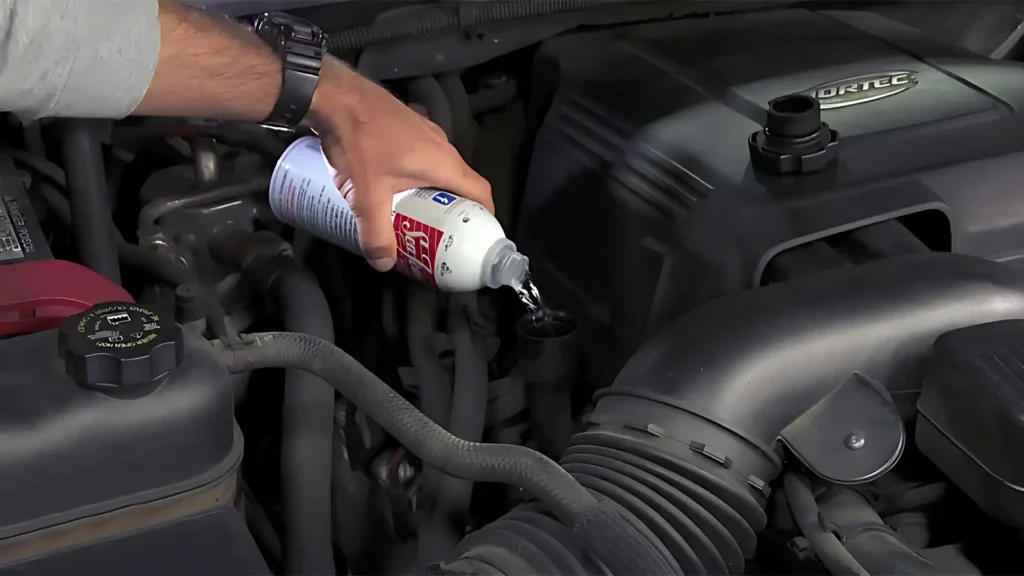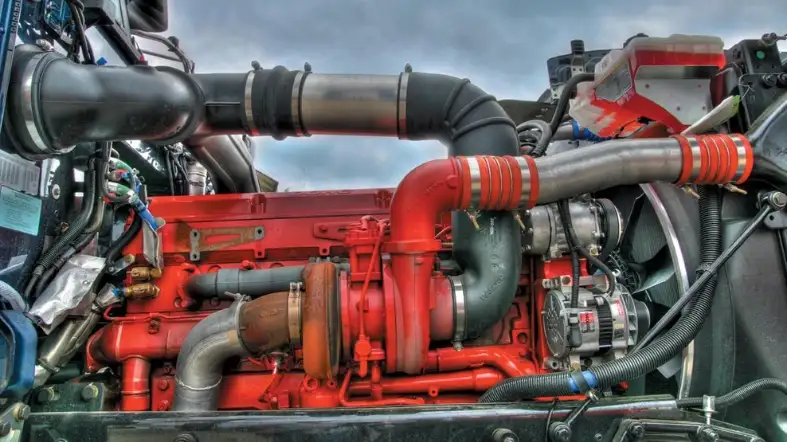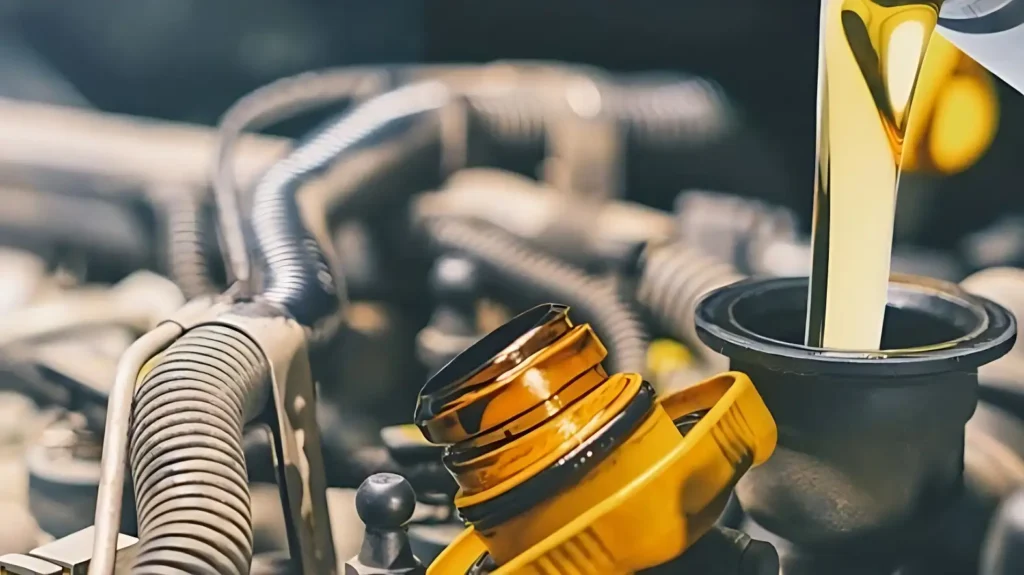Lucas Oil Stabilizer is a popular product used to enhance engine performance and efficiency in diesel engines.
It is designed to improve oil pressure, reduce engine wear, and increase fuel economy.
Many diesel engine owners use Lucas Oil Stabilizer to extend the life of their engines and reduce emissions.
In this article, we will examine the benefits of using Lucas Oil Stabilizer in diesel engines and explore its effectiveness compared to other oil additives.
Is Lucas Oil Stabilizer Good For Diesel Engines?
Yes, Lucas Oil Stabilizer is good for diesel engines due to its specially formulated additives. It reduces engine wear, improves seal life, and lessens engine noise. Additionally, it can enhance fuel economy and extend engine life, making it a great option for diesel engine owners.

Benefits of using Lucas Oil Stabilizer in diesel engines
Using Lucas Oil Stabilizer in diesel engines can provide numerous benefits. Below are some detailed explanations of the benefits:
Increases engine performance and efficiency:
The stabilizer contains a blend of high-quality base oils and petroleum extracts that work together to reduce friction and wear in the engine.
Doing so, can help to improve engine performance and efficiency.
The stabilizer also contains viscosity improvers that help the oil to maintain its consistency even in extreme temperatures, which further enhances engine performance.
Reduces engine wear and tear:
Lucas Oil Stabilizer contains anti-wear agents that help to reduce engine wear and tear.
These agents form a protective film over the engine parts, reducing the metal-to-metal contact that causes wear.
This can lead to a longer lifespan for the engine, fewer breakdowns, and lower maintenance costs.
Improves fuel economy:
By reducing friction and improving engine performance, Lucas Oil Stabilizer can also help to improve fuel economy.
It requires less fuel to produce the same amount of power to run more efficiently. This can save diesel engine owners money on fuel costs over time.
Enhances oil pressure and lubrication:
The stabilizer also helps to enhance oil pressure and lubrication.
It contains detergents that help to clean the engine and prevent the formation of sludge and deposits.
This can help to maintain oil pressure, even in high-mileage engines, and ensure that the oil can lubricate the engine parts effectively.
Improved lubrication can also help to reduce engine heat, which can further enhance engine performance and reduce wear.
Reduces oil consumption:
Lucas Oil Stabilizer can help to reduce oil consumption by improving the oil’s ability to stay in the engine and lubricate its parts.
It contains seal conditioners that help to keep engine seals pliable and prevent oil leaks.
By reducing oil consumption, the stabilizer can save diesel engine owners money on oil changes and reduce waste.
Reduces emissions and pollution:
By improving engine performance and efficiency, Lucas Oil Stabilizer can help to reduce emissions and pollution.
When the engine is running more efficiently, it produces fewer harmful emissions. This can lead to a cleaner environment and fewer negative effects on human health.
Helps to extend engine life:
Using Lucas Oil Stabilizer in diesel engines can help to extend the engine’s life.
By reducing wear and tear, improving lubrication, and enhancing performance, the stabilizer can help to prevent breakdowns and costly repairs.
This can save diesel engine owners money on repairs and replacements over time.
How to use Lucas Oil Stabilizer in diesel engines

Here’s a detailed guide on using Lucas Oil Stabilizer in diesel engines:
Determine the correct amount:
The first step in using Lucas Oil Stabilizer in a diesel engine is to determine the correct amount to use.
You can find the recommended amount of stabilizer for your engine by consulting the product label or the manufacturer’s website.
As a general rule, you’ll need to use one quart of stabilizer for every four quarts of oil in your engine.
Warm up the engine:
Before adding the stabilizer, you should warm up the engine by running it for a few minutes.
This will help to ensure that the oil is warm and flowing smoothly. You can do this by starting the engine and letting it idle for 5-10 minutes, or by taking a short drive.
Add the stabilizer:
Once the engine is warm, you can add the Lucas Oil Stabilizer to your engine. To do this, locate the oil filler cap on the engine and remove it.
Slowly pour the recommended amount of stabilizer into the engine, being careful not to spill any. You can use a funnel to help pour the stabilizer in if necessary.
Replace the oil filler cap:
After adding the stabilizer, replace the oil filler cap securely to prevent any oil or stabilizer from leaking out.
Check the oil level:
After adding the stabilizer, you should check the oil level in your engine to ensure that it’s at the correct level.
You can do it by removing the dipstick, wiping it clean with a rag, and then reinserting it into the dipstick tube.
Pull the dipstick out again and check the oil level against the markings on the dipstick. If the level is low, you can add more oil to bring it up to the correct level.
Run the engine:
Once you’ve added the stabilizer and checked the oil level, start the engine and let it run for a few minutes.
This will allow the stabilizer to circulate through the engine and mix with the oil. You can let the engine idle for 5-10 minutes or take a short drive around the block.
Check the oil level again:
After running the engine, you should check the oil level again to ensure that it’s at the correct level. If necessary, add more oil to bring it up to the correct level.
Compatibility with different diesel engine types

There is some compatibility of Lucas Oil Stabilizer with different diesel engine types:
Compatibility with conventional diesel engines:
Conventional diesel engines are older designs that typically use a simple, direct injection system without any advanced emissions controls.
Lucas Oil Stabilizer is compatible with these engines and can help protect them against wear and tear, reduce friction, and improve fuel efficiency.
The stabilizer can help reduce engine noise and extend the engine’s lifespan.
Compatibility with modern diesel engines:
Modern diesel engines are more advanced and feature emissions control systems such as Diesel Particulate Filters (DPF), Selective Catalytic Reduction (SCR), and Exhaust Gas Recirculation (EGR).
Lucas Oil Stabilizer is compatible with these engines and can help improve fuel efficiency, reduce wear and tear, and extend the engine’s lifespan.
The stabilizer can help reduce emissions by keeping the engine clean and operating smoothly.
Compatibility with turbocharged diesel engines:
Turbocharged diesel engines generate more heat and stress than non-turbocharged engines due to the high-pressure airflow generated by the turbocharger.
Lucas Oil Stabilizer is compatible with both turbocharged and non-turbocharged diesel engines and can help protect against wear and tear caused by the increased stress on the engine.
The stabilizer can help reduce engine noise, improve fuel efficiency, and extend the engine’s lifespan.
Compatibility with high-mileage diesel engines:
High-mileage diesel engines can decrease performance and increase maintenance costs.
Lucas Oil Stabilizer is compatible with these engines and can help protect against further damage by reducing friction and wear, improving fuel efficiency, and extending the engine’s lifespan.
The stabilizer can help reduce engine noise and provide smoother operation.
Compatibility with diesel engines with hydraulic lifters:
Hydraulic lifters are used in some diesel engines to control valve operation. These lifters require high-quality oil to function properly and avoid valve noise and failure.
Lucas Oil Stabilizer is compatible with engines and can help improve their performance by reducing friction and wear and maintaining proper oil pressure.
Compatibility with diesel engines with variable valve timing:
Variable valve timing technology is used in some diesel engines to improve performance and fuel efficiency.
This technology requires a high-quality oil to function properly and avoid problems with valve timing.
Lucas Oil Stabilizer is compatible with engines that use variable valve timing and can help improve their performance by reducing friction and wear, maintaining proper oil pressure, and keeping the engine clean.
Compatibility with diesel engines with emissions control systems:
Modern diesel engines use emissions control systems such as Diesel Particulate Filters (DPF), Selective Catalytic Reduction (SCR), and Exhaust Gas Recirculation (EGR) to reduce harmful pollutants.
These systems can be sensitive to certain additives, but Lucas Oil Stabilizer is compatible with them and won’t interfere with their operation.
The stabilizer can help reduce emissions by keeping the engine clean and operating smoothly.
Comparison With Other Oil Additives

Here’s a comparison of Lucas Oil Stabilizer with some other popular oil additives on the market:
Prolong Super Lubricants Engine Treatment:
Prolong Super Lubricants Engine Treatment is a popular oil additive that claims to reduce engine wear, improve fuel efficiency, and extend the engine’s lifespan.
This product contains a high concentration of Zinc Dialkyl Dithiophosphate (ZDDP), which can damage catalytic converters and emissions control systems over time.
Lucas Oil Stabilizer is formulated with a lower concentration of ZDDP and is compatible with most emissions control systems.
STP Oil Treatment:
STP Oil Treatment is another popular oil additive that claims to reduce engine wear, improve fuel efficiency, and extend the engine’s lifespan.
This product contains a high concentration of viscosity improvers, which can thicken the oil and cause clogs in oil passages and filters.
Lucas Oil Stabilizer is formulated with high-quality synthetic and petroleum-based oils that won’t cause clogs or reduce oil flow.
Sea Foam Motor Treatment:
Sea Foam Motor Treatment is a versatile oil additive that can be used in gasoline and diesel engines to clean and lubricate various engine components.
This product is primarily a cleaning agent and doesn’t contain any anti-wear additives like Lucas Oil Stabilizer.
While Sea Foam can help remove deposits and improve engine performance, it doesn’t provide the same level of protection against wear and tear.
Marvel Mystery Oil:
Marvel Mystery Oil is a popular oil additive that claims to reduce engine wear, improve fuel efficiency, and clean engine components.
This product contains a high concentration of solvent-based cleaning agents, which can damage engine seals and gaskets over time.
Lucas Oil Stabilizer is formulated with high-quality oils and friction modifiers that won’t damage engine components or cause leaks.
Precautions and warnings
While using Lucas Oil Stabilizer in your diesel engine, it’s important to keep the following precautions and warnings in mind:
Don’t Overfill:
When using Lucas Oil Stabilizer, make sure not to overfill the engine oil. Overfilling the oil can cause leaks and potentially damage engine components.
Compatibility with Other Additives:
Before adding any other oil additives to your engine, make sure to check their compatibility with Lucas Oil Stabilizer.
Adding incompatible additives can reduce the effectiveness of the stabilizer or potentially damage engine components.
Follow Manufacturer Recommendations:
Always follow the manufacturer’s recommendations for oil viscosity and oil change intervals.
While Lucas Oil Stabilizer can extend the lifespan of your engine oil, it doesn’t replace the need for regular oil changes.
Storage:
When storing Lucas Oil Stabilizer, make sure to keep it in a cool, dry place away from direct sunlight and heat sources.
Safety:
When handling any oil or oil additive, always wear appropriate safety gear such as gloves and safety glasses to protect yourself from potential hazards.
Dispose of Properly:
When disposing of used oil or oil additives, make sure to follow local regulations and dispose of them properly. Never dump used oil or oil additives into the environment or the trash.
FAQs
Is Lucas Oil Stabilizer Compatible With All Types Of Diesel Engines?
Lucas Oil Stabilizer is compatible with all types of diesel engines, including those in cars, trucks, boats, and heavy-duty equipment.
It is designed to work with both synthetic and conventional oils and can be used in both gasoline and diesel engines.
How Much Lucas Oil Stabilizer Should I Use In My Diesel Engine?
The recommended amount of Lucas Oil Stabilizer to use in a diesel engine is 20% of the total oil capacity.
For example, if your engine requires 5 quarts of oil, you would add 1 quart of Lucas Oil Stabilizer.
It is important to not exceed the recommended amount, as this can cause issues such as increased oil pressure.
How Often Should I Use Lucas Oil Stabilizer In My Diesel Engine?
Lucas Oil Stabilizer is recommended to be used with every oil change.
It can also be added between oil changes to help maintain the health and performance of the engine.
Using Lucas Oil Stabilizer with every oil change ensures that your engine is consistently protected and lubricated.
Can Lucas Oil Stabilizer Fix Engine Problems?
While Lucas Oil Stabilizer can help prevent engine problems and extend the life of your engine, it cannot fix existing engine problems such as worn-out components or leaks.
It is not a replacement for proper maintenance and repairs.
Will Using Lucas Oil Stabilizer Void My Engine’s Warranty?
No, using Lucas Oil Stabilizer will not void your engine’s warranty as long as it is used according to the manufacturer’s recommendations.
Lucas Oil Stabilizer has been tested and proven to be safe for use in all types of engines, and will not harm or damage your engine.
Can I Use Lucas Oil Stabilizer In A New Diesel Engine?
Yes, using Lucas Oil Stabilizer in a new diesel engine can help protect it from wear and tear and extend its lifespan.
Adding Lucas Oil Stabilizer to a new engine can also help prevent premature engine failure and improve overall engine performance.
Follow the manufacturer’s recommendations and do not exceed the recommended amount of Lucas Oil Stabilizer.
Conclusion
Lucas Oil Stabilizer is a highly effective oil additive that can significantly improve the performance and lifespan of diesel engines.It is compatible with a wide range of diesel engines and is easy to use.
Follow precautions and warnings to ensure its safe and effective use. Lucas Oil Stabilizer can extend the lifespan of engine oil, but it doesn’t replace the need for regular oil changes.
If you’re looking for a reliable and effective way to improve the performance and lifespan of your diesel engine, Lucas Oil Stabilizer is worth considering.
